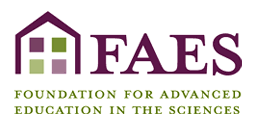 Introduction to Global Health, a special course from the Foundation for Advanced Education in the Sciences (FAES) Graduate School at NIH, will be offered during the spring 2013 semester. The course provides an opportunity to increase knowledge of the challenges currently facing global health.
Introduction to Global Health, a special course from the Foundation for Advanced Education in the Sciences (FAES) Graduate School at NIH, will be offered during the spring 2013 semester. The course provides an opportunity to increase knowledge of the challenges currently facing global health.
The course is presented as a series of guest lectures, led by esteemed leadership and subject matter experts from Fogarty, other Institutes and Centers throughout NIH, NGOs and universities.
Registration Information
About the Course
- The course is open to everyone, not only to NIH staff.
- There are no prerequisites.
- Students are required to purchase the textbook, Global Health 101, Second Edition, by Richard Skolnik (ISBN-13: 9780763797515). The textbook is available at the FAES bookstore or from other online retailers.
- Tuition is $290 ($145 per credit hour) for the semester.
- The course consists of evening lectures from January to May, 2013.
- Classes will be held at the Stone House (Building 16) on the NIH campus in Bethesda, Maryland. (View NIH Visitor Information.)
- Instructor:
James Herrington, Ph.D., M.P.H.
Director, Fogarty Division of International Relations
James.Herrington@nih.gov
- Teaching Assistant:
Celia Wolfman, M.S.P.P.M.
Fogarty Scientific Program Analyst (Contractor)
Celia.Wolfman@nih.gov
Course Description
Global Health is described as "an area for study, research and practice that places a priority on improving health and achieving equity in health for all people worldwide" (Koplan J, 2009. Lancet. 373: 1993).
During the course, a broad snapshot of global health will be presented, providing students with insight into the challenges currently facing global health. Participants will also gain an understanding of why tackling global health issues is such an important endeavor with the potential to reduce poverty, build stronger economies and promote peace. Students will not only be exposed to the major communicable and non-communicable diseases posing a profound effect on health (especially within the developing world) but will also discover how socio-economic and demographic differences can influence the burden of disease. A number of other critical underlying factors including environmental, behavioral and cultural influences will also be presented. Through the use of case reports from around the world, the course will also explore how research findings are transferred into policy and practice. Students will be encouraged to understand that solving global health problems requires the input of multiple disciplines. To emphasize this point, speakers will be drawn from multiple fields including the sciences, ethics economics and diplomacy.
Updated January 24, 2013